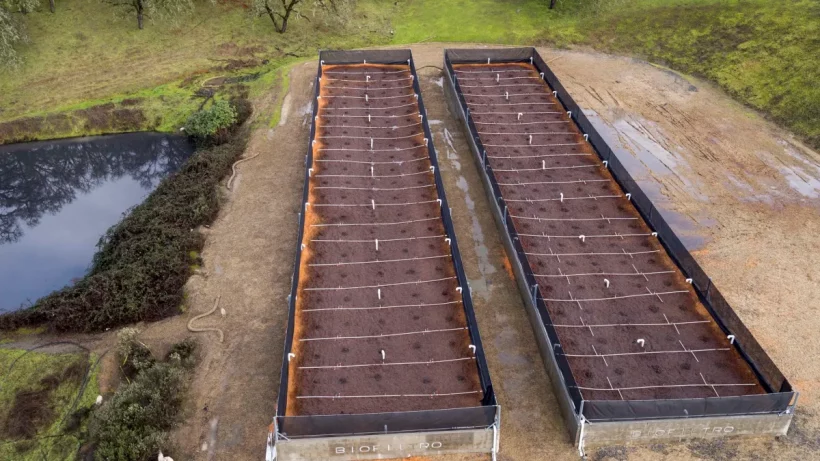 By DR. MIRIAM ACZEL
By DR. MIRIAM ACZEL
In recent years, California has suffered from water shortages. This year’s severe drought—and previous ones—have led to the loss of crops for many grape growers in the state’s wine country. Studies show that it can take anywhere from two to over fifteen gallons of water to make just one glass of California wine.
But many wineries have found ways to adapt. Fetzer Vineyards, which follows organic winegrowing practices, cultivates healthy soil, and conserves water resources, became the first winery in the U.S. to use an innovative system to treat wastewater—worms! This biological wastewater treatment system harnesses the power of microbes and red worms to generate millions of gallons of water each year to irrigate local grape crops.
Reducing Wastewater
On average, California wineries produce roughly six gallons of wastewater for each gallon of wine created. This is because most of the state’s wineries employ outdoor ponds to treat the wastewater produced. These ponds use large motors to pump air into the wastewater, which consumes a lot of energy. On top of this, it can take up to three months to remove the plant debris and sugars found in the wastewater. Failing to remove this debris would pollute waterways, so it’s critical that the biological wastes are fully removed before the water can be reused.
Enter Fetzer Vineyard’s novel purification system, which can break down biological wastes in only four hours! Fetzer uses the help of billions of worms that consume the organic matter found in the liquid wastewater resulting in just two byproducts: worm castings, which is an excellent organic fertilizer, and purified water. Fetzer’s system can produce over 15 million gallons of water and over 20,000 cubic feet of worm castings each year that the winery uses to fertilize its crops. This worm-tastic system is a win-win for the winery: the worms produce purified water—much faster than energy-consuming aerating pumps—and provide organic fertilizer for the vineyards’ crops. According to Josh Prigge, Director of Regenerative Development for Fetzer Vineyards, the system “brings things full-circle with enhanced compost for [the] soils and clean water for vineyard and landscape irrigation.”

Credit: Sustainable Small Houses
Cheers to Fetzer’s ingenious efforts to reduce water, naturally fertilize grapes, and feed billions of hungry worms along the way; and special thanks to David Warner from Redhorse Constructors for first mentioning Fetzer’s innovative system to the EcoBlock team!
Cover image credit: Fetzer Vineyards
Editor’s note: this article originally appeared on the EcoBlock blog
Dr. Miriam Aczel is Leaders in Energy’s Director of Scientific Communications. Miriam is a postdoctoral scholar at the California Institute for Energy & Environment (CIEE) based at UC Berkeley, working on the Oakland Ecoblock project. She is also currently an Honorary Research Associate at Imperial College London’s Centre for Environmental Policy, with a focus on international energy science and policy, with a focus on mitigation of environmental and health impacts of shale gas. Miriam earned her PhD at Imperial College London in 2020, where she was a President’s PhD Scholar. She is also co-founder and co-director of the Amir D. Aczel Foundation for Research and Education in Science and Mathematics, a nonprofit based in Cambodia.



Leave a Reply